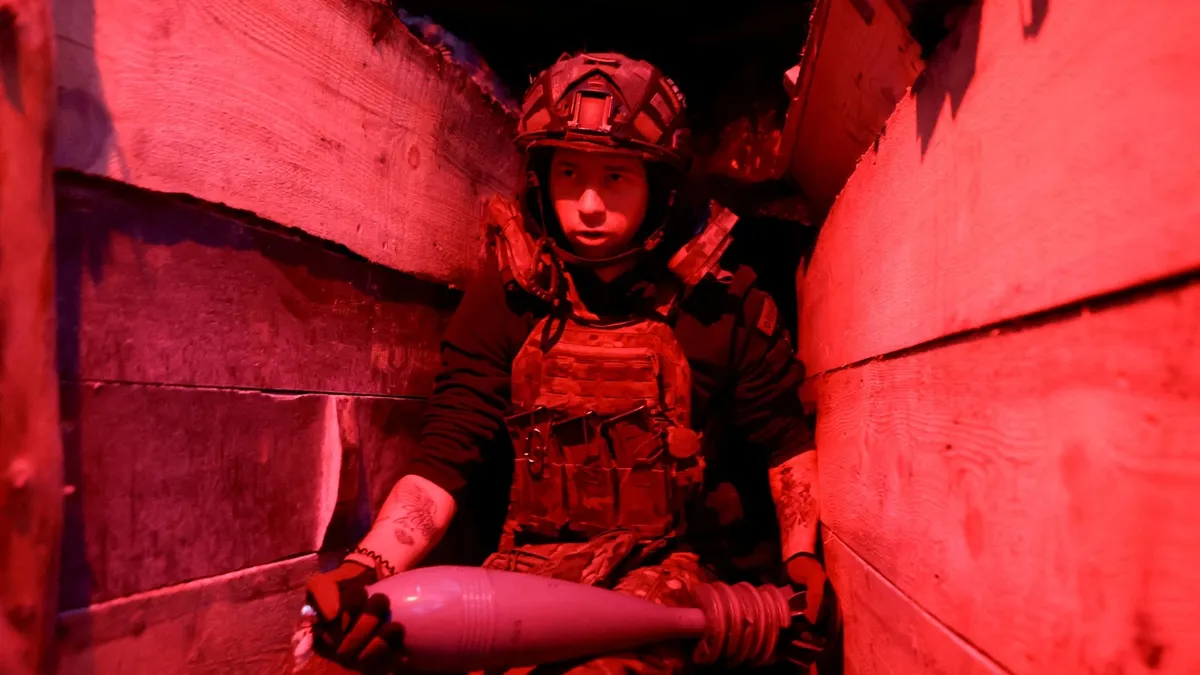
LONDON -- President Donald Trump is scheduled to hold a crucial conversation with Russian President Vladimir Putin at approximately 10 a.m. ET on Monday. This discussion comes as the White House intensifies its efforts to bring an end to Moscow's three-year-long invasion of Ukraine, following recent peace talks that took place in Istanbul, Turkey.
The main topics of their call will include halting the ongoing bloodbath, which has resulted in the deaths of over 5,000 Russian and Ukrainian soldiers weekly. Trump shared his intentions in a post on his Truth Social platform, stating, "I will then be speaking to President Zelenskyy of Ukraine and then, with President Zelenskyy, various members of NATO." This multi-faceted approach highlights the interconnected nature of the ongoing conflict and international diplomacy.
The Kremlin's spokesperson, Dmitry Peskov, verified that the call would occur at 5 p.m. Moscow time, aligning with Trump's 10 a.m. ET schedule. The upcoming dialogue marks the first direct communication between Trump and Putin since February, a significant gap considering the escalating tensions and the complexities surrounding the war in Ukraine.
The renewed contact follows Trump’s initial optimism regarding peace talks in Istanbul, which were disrupted when Putin declined to attend, despite an invitation from Ukrainian President Volodymyr Zelenskyy. These Istanbul negotiations were the first formal discussions between representatives of Moscow and Kyiv since spring 2022, when previous attempts at peace were unsuccessful.
After it became evident that Putin would not participate in the talks, Trump remarked to reporters, "Nothing's going to happen until Putin and I get together, okay?" He emphasized the need for direct dialogue to facilitate a resolution, stating, "I don't believe anything's going to happen... until he and I get together." Trump's assertion underscores the belief that personal diplomacy could be crucial in addressing the ongoing conflict.
Despite Trump's threats of imposing further sanctions on Russia, there has been little observable change in Moscow's strategic goals. Russian officials continue to demand that Ukraine cede control of four regions and Crimea, while also seeking guarantees against Ukraine's NATO accession. Putin recently stated that any peace agreement must address the root causes of the conflict to ensure Russia's security.
In response, Kyiv and its European allies are advocating for a comprehensive 30-day ceasefire, arguing that this period would allow for meaningful negotiations. However, Moscow has rejected this proposal, insisting that any ceasefire must also halt all Western military support to Ukraine.
Following the Istanbul talks, high-level diplomatic engagements persisted, with Secretary of State Marco Rubio conversing with Russian Foreign Minister Sergey Lavrov. State Department spokesperson Tammy Bruce noted Rubio's support for a prisoner exchange agreement that emerged from the Istanbul discussions and highlighted Trump's call for an immediate ceasefire.
Additionally, Vice President JD Vance met with Zelenskyy at the Vatican on Saturday, following an invitation from Pope Leo XIV for a bilateral discussion. Post-meeting, Zelenskyy tweeted his commitment to genuine diplomacy, underlining the urgency of achieving a full and unconditional ceasefire as soon as possible.
Ukrainian Foreign Minister Andrii Sybiha remarked on social media that the Istanbul meeting showcased a significant divide between the two nations. He noted that Ukraine is focused on moving forward with peace efforts, while Russia remains fixated on past negotiations and demands. Sybiha emphasized the need for increased pressure on Russia to catalyze a resolution to the conflict.
As diplomatic talks unfold, military engagements continue unabated. Over the weekend, the Ukrainian air force reported that Russia launched 112 drones into Ukraine, with 76 being intercepted or jammed. Damage was inflicted across five regions, highlighting the ongoing volatility of the situation. In response, Russia’s Defense Ministry claimed to have downed 35 Ukrainian drones in a single night.